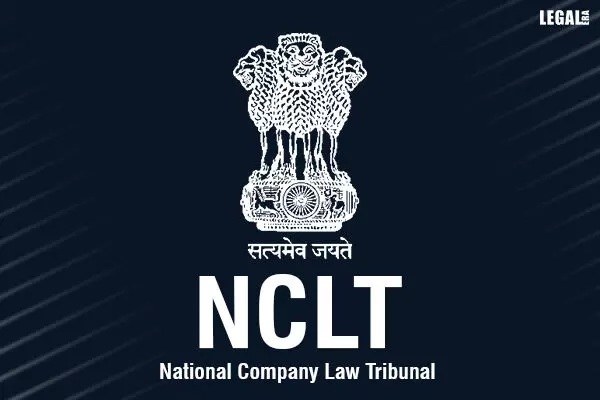- Home
- News
- Articles+
- Aerospace
- Artificial Intelligence
- Agriculture
- Alternate Dispute Resolution
- Arbitration & Mediation
- Banking and Finance
- Bankruptcy
- Book Review
- Bribery & Corruption
- Commercial Litigation
- Competition Law
- Conference Reports
- Consumer Products
- Contract
- Corporate Governance
- Corporate Law
- Covid-19
- Cryptocurrency
- Cybersecurity
- Data Protection
- Defence
- Digital Economy
- E-commerce
- Employment Law
- Energy and Natural Resources
- Entertainment and Sports Law
- Environmental Law
- Environmental, Social, and Governance
- Foreign Direct Investment
- Food and Beverage
- Gaming
- Health Care
- IBC Diaries
- In Focus
- Inclusion & Diversity
- Insurance Law
- Intellectual Property
- International Law
- IP & Tech Era
- Know the Law
- Labour Laws
- Law & Policy and Regulation
- Litigation
- Litigation Funding
- Manufacturing
- Mergers & Acquisitions
- NFTs
- Privacy
- Private Equity
- Project Finance
- Real Estate
- Risk and Compliance
- Student Corner
- Take On Board
- Tax
- Technology Media and Telecom
- Tributes
- Viewpoint
- Zoom In
- Law Firms
- In-House
- Rankings
- E-Magazine
- Legal Era TV
- Events
- Middle East
- Africa
- News
- Articles
- Aerospace
- Artificial Intelligence
- Agriculture
- Alternate Dispute Resolution
- Arbitration & Mediation
- Banking and Finance
- Bankruptcy
- Book Review
- Bribery & Corruption
- Commercial Litigation
- Competition Law
- Conference Reports
- Consumer Products
- Contract
- Corporate Governance
- Corporate Law
- Covid-19
- Cryptocurrency
- Cybersecurity
- Data Protection
- Defence
- Digital Economy
- E-commerce
- Employment Law
- Energy and Natural Resources
- Entertainment and Sports Law
- Environmental Law
- Environmental, Social, and Governance
- Foreign Direct Investment
- Food and Beverage
- Gaming
- Health Care
- IBC Diaries
- In Focus
- Inclusion & Diversity
- Insurance Law
- Intellectual Property
- International Law
- IP & Tech Era
- Know the Law
- Labour Laws
- Law & Policy and Regulation
- Litigation
- Litigation Funding
- Manufacturing
- Mergers & Acquisitions
- NFTs
- Privacy
- Private Equity
- Project Finance
- Real Estate
- Risk and Compliance
- Student Corner
- Take On Board
- Tax
- Technology Media and Telecom
- Tributes
- Viewpoint
- Zoom In
- Law Firms
- In-House
- Rankings
- E-Magazine
- Legal Era TV
- Events
- Middle East
- Africa
NCLT Chennai Rules That Only Committee Of Creditors Can Replace Resolution Professional, Not Operational Creditors

NCLT Chennai Rules That Only Committee of Creditors Can Replace Resolution Professional, Not Operational Creditors
The National Company Law Tribunal (NCLT), Chennai Bench, consisting of Jyoti Kumar Tripthi (Judicial Member) and Ravichandran Ramasamy (Technical Member), has ruled that operational creditors do not possess the right to replace a Resolution Professional (RP) under Section 27 of the Insolvency and Bankruptcy Code (IBC). The tribunal emphasized that necessary parties required for adjudication will be heard in accordance with the principles of natural justice.
Giriraj Enterprises, an operational creditor, filed an application under Section 60(5) of the IBC, seeking to be included as a party in a pending application. The applicant argued that, as an operational creditor, it had the right to participate in the Corporate Insolvency Resolution Process (CIRP), including matters concerning the appointment or replacement of the RP. Giriraj Enterprises further contended that State Bank of India (SBI), a lender, was attempting to obstruct the CIRP and did not have the authority to replace the RP, asserting that only the Committee of Creditors (CoC) is empowered to do so under Section 27 of the IBC. The applicant maintained that it was essential to be included in the proceedings to protect its interests.
The NCLT clarified that the CoC is solely authorized to replace the RP, and operational creditors do not have a say in this matter. The tribunal noted that operational creditors are not members of the CoC and do not possess voting rights within it. While the principle of natural justice mandates that all parties be heard, the tribunal determined that this principle does not extend to operational creditors in the context of RP replacement, as they lack the relevant statutory rights.
The NCLT emphasized that the right to replace the RP is not conferred upon operational creditors by the IBC, and therefore, there was no justification to include them in the application concerning the RP’s replacement.
In conclusion, the NCLT held that operational creditors cannot participate in the RP replacement process, as such a right is not established within the statutory framework of the IBC. As a result, Giriraj Enterprises’ application was dismissed.



